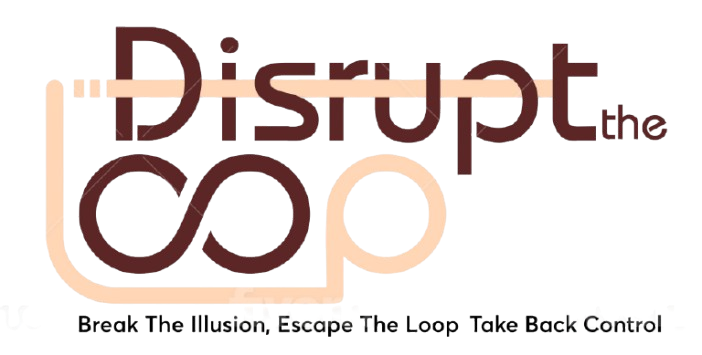Abstract
This study examines the intersection of culturally constructed value systems, emotional
responses, and power dynamics at individual and geopolitical levels. Through analysis of
relationship valuation mechanisms, cultural emotion construction, and medical response
paradigms, we explore how human attempts to standardize responses and values create
fundamental tensions between different cultural systems. The research suggests that
understanding the constructed nature of emotional and value systems provides both
liberation from artificial standards and insight into larger power dynamics, while ultimately
pointing to the necessity of divine intervention as a means of transcending these
limitations.
1. Introduction
Current global power shifts reveal deeper patterns in how humans construct and impose
systems of value and meaning. From individual relationship dynamics to international
power structures, attempts to create universal standards consistently fail due to the
fundamentally constructed nature of human response systems. This study aims to analyze
these constructions and their implications for power dynamics across multiple levels of
human interaction, ultimately proposing divine intervention as the only means of escaping
these constructed systems.
2. Theoretical Framework
2.1 Cultural Construction of Value
Value systems, particularly in interpersonal relationships, operate similarly to financial
systems, with physical attraction serving as a form of “fiat currency”. Berscheid and
Walster’s (1974) seminal work on interpersonal attraction supports this concept,
demonstrating how physical attractiveness serves as a primary metric in initial relationship
formation. Secondary qualities are then measured against this base value, creating a
complex system of derived worth. This system varies significantly across cultures,
demonstrating its constructed nature, as evidenced by cross-cultural studies on mate
preferences (Buss, 1989).
2.2 Emotional Construction Theory
Emotions, often considered universal, are increasingly recognized as cultural products.
Anthropological studies, such as Lutz’s (1988) work on the Ifaluk people, demonstrate how
emotional concepts can vary significantly across cultures. The case of the Bakau tribe’s
prohibition of anger exemplifies how even seemingly fundamental emotional responses are
culturally mediated. This understanding aligns with constructionist theories of emotion
(Barrett, 2017), which argue that emotions are not innate but are constructed through
cultural and personal experiences.
2.3 Power-Fear Dynamic
Fear responses, often assumed to be innate, are frequently learned and culturally
reinforced. Power can be understood as a strategic response to these constructed fears,
offering a means of navigating and manipulating social control mechanisms. This
perspective builds on Foucault’s (1977) concepts of power and knowledge, where power is
seen not as a top-down force but as a network of relationships and cultural practices.
3. Value System Analysis
3.1 Relationship Valuation Mechanisms
Primary value metrics in relationships, such as physical attraction, serve as base
currencies against which other qualities are measured. However, these standards vary
significantly across cultures, creating instability in cross-cultural contexts. Evolutionary
psychologists like Buss (1989) have documented these cross-cultural variations in mate
preferences.
Secondary value systems, including personality traits and social skills, are culturally
qualified and derive their worth from primary metrics. This creates complex, culturally
specific valuation systems that resist standardization, as demonstrated by studies on
cultural differences in personality trait valuation (McCrae & Terracciano, 2005).
3.2 Cultural Response Patterns
Emotional responses, including anger and fear, are increasingly recognized as cultural
products rather than universal human traits. This understanding allows for strategic
adaptation in cross-cultural contexts, exemplified by concepts like “thick face black heart”
in navigating diverse cultural frameworks. This perspective aligns with cultural psychology
research on emotion (Mesquita et al., 2016), which emphasizes the role of cultural
contexts in shaping emotional experiences and expressions.
4. Medical System Parallel
Attempts at standardizing medical responses reveal the limitations of universal
interpretations in culturally diverse contexts. The case of chest pain response in Western
medicine demonstrates how cultural assumptions can shape even supposedly objective
diagnostic processes. This aligns with research on cultural competence in healthcare
(Betancourt et al., 2003), which emphasizes the need for culturally sensitive approaches to
medical practice.
5. Global Power Dynamics
The BRICS nations’ strategic approach to power acquisition demonstrates sophisticated
manipulation of value systems and cultural control mechanisms. In contrast, Western
systems often fail due to reactive approaches and cultural biases, revealing systemic
vulnerabilities. This analysis builds on international relations theories, particularly
constructivist approaches that emphasize the role of ideas and cultural norms in shaping
global politics (Wendt, 1999).
6. Liberation Through Understanding
Recognition of these constructed systems offers potential liberation at both individual and
collective levels. Understanding the arbitrary nature of many cultural constraints allows for
strategic navigation of power dynamics and emotional autonomy. This perspective aligns
with critical theory approaches in sociology and cultural studies (Horkheimer, 1972), which
seek to uncover and challenge hidden power structures in society.
7. Divine Intervention Framework
The limitations of human-constructed systems point to the need for transcendent
solutions. Divine intervention is proposed as a means of breaking cultural constraints and
accessing universal truths beyond constructed values. While this concept moves beyond
empirical scientific inquiry, it resonates with philosophical and theological discussions on
the nature of truth and human limitations (Plantinga, 2000).
8. Conclusion
This analysis reveals both the limitations and opportunities presented by the constructed
nature of human value and response systems. While offering potential liberation from
artificial constraints, it also demonstrates the fundamental inadequacy of human-created
systems in providing lasting solutions to issues of power and control. The study suggests
that only divine intervention can truly transcend these constructed limitations, offering a
provocative direction for future research and philosophical inquiry.
The Implications of this research extend beyond academic discourse, challenging
individuals and societies to critically examine the constructed nature of their value
systems and power structures. Future research could explore practical applications of
these insights in fields such as international relations, cultural psychology, and social
policy.
References
Simmel, G. (1900). The Philosophy of Money. Routledge.
Berscheid, E., & Walster, E. (1974). Physical attractiveness. Advances in Experimental
Social Psychology, 7, 157-215.
Buss, D. M. (1989). Sex differences in human mate preferences: Evolutionary hypotheses
tested in 37 cultures. Behavioral and Brain Sciences, 12(1), 1-14.
Lutz, C. (1988). Unnatural Emotions: Everyday Sentiments on a Micronesian Atoll and Their
Challenge to Western Theory. University of Chicago Press.
Barrett, L. F. (2017). How Emotions Are Made: The Secret Life of the Brain. Houghton Mifflin
Harcourt.
Foucault, M. (1977). Discipline and Punish: The Birth of the Prison. Pantheon Books.
McCrae, R. R., & Terracciano, A. (2005). Universal features of personality traits from the
observer’s perspective: Data from 50 cultures. Journal of Personality and Social
Psychology, 88(3), 547-561.
Mesquita, B., De Leersnyder, J., & Boiger, M. (2016). The cultural psychology of emotions. In
L. F. Barrett, M. Lewis, & J. M. Haviland-Jones (Eds.), Handbook of Emotions (4th ed., pp.
393-411). Guilford Press.
Betancourt, J. R., Green, A. R., Carrillo, J. E., & Ananeh-Firempong, O. (2003). Defining
cultural competence: A practical framework for addressing racial/ethnic disparities in
health and health care. Public Health Reports, 118(4), 293-302.
Wendt, A. (1999). Social Theory of International Politics. Cambridge University Press.
Horkheimer, M. (1972). Critical Theory: Selected Essays. Continuum.
Plantinga, A. (2000). Warranted Christian Belief. Oxford University Press.

